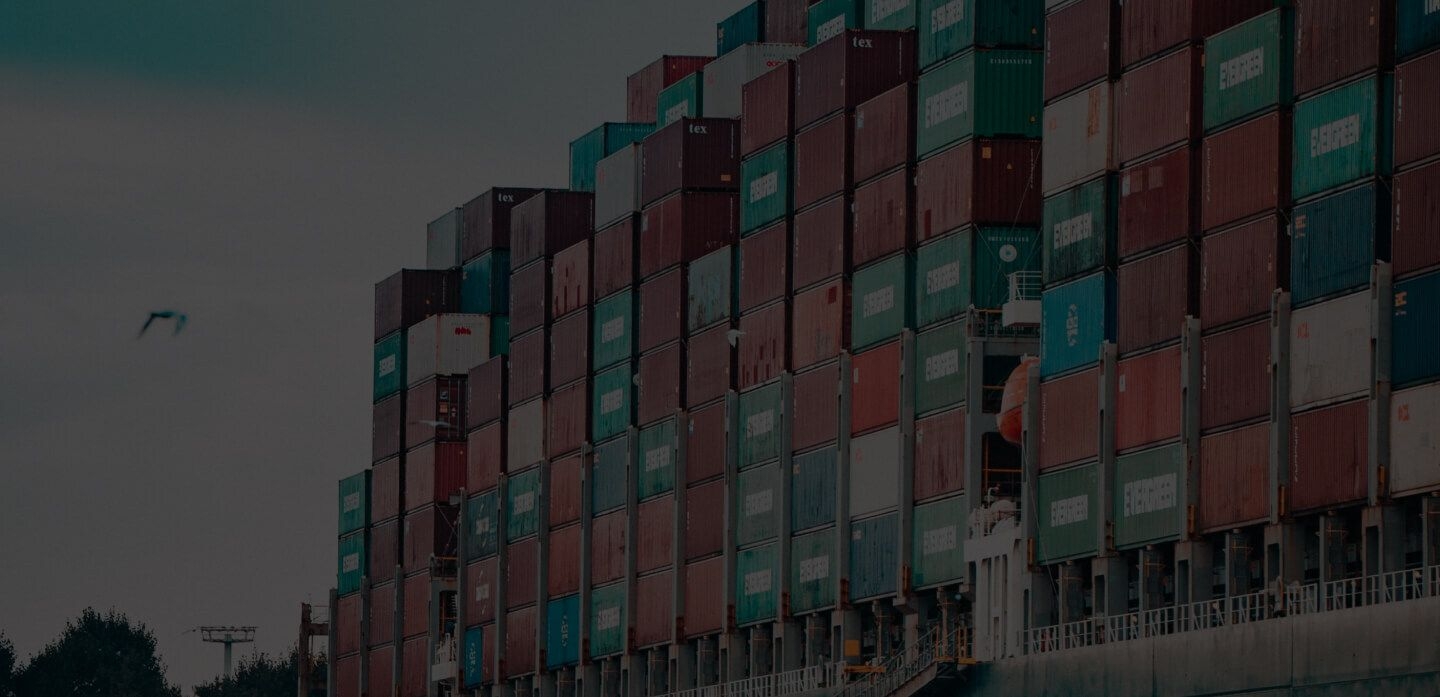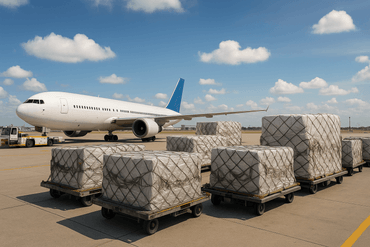
Freight Insurance 101: Types, Coverage & Cost



International shipping opens doors to new markets—but it also exposes businesses to risk. Accidental damage, theft, or loss during transit can significantly impact your bottom line. While preventive measures are essential, having a financial safety net is just as important.
That’s where freight insurance comes in. Whether you’re moving goods by land, sea, or air, freight insurance helps you protect the value of your cargo and minimize disruption to your operations.
What Is Freight Insurance and Why Is It Important?
Freight insurance is a policy that compensates the cargo owner in the event of loss, damage, or theft during transit. It ensures that businesses are not left bearing the full cost of unforeseen incidents—an especially critical safeguard when shipping high-value or time-sensitive goods.
Beyond financial protection, freight insurance also supports:
- Business continuity
- Contractual compliance (in some Incoterms cases)
- Customer confidence and trust
Types of Freight Insurance Coverage
Understanding the types of freight insurance available can help you select a policy that matches your cargo’s risk profile.
All-Risk Insurance
This is the most comprehensive option, covering a broad range of incidents—such as damage, theft, or natural disasters—unless specifically excluded. Recommended for:
- Fragile, high-value shipments
- Multi-modal or long-distance shipping
- Businesses requiring full coverage for peace of mind
Total Loss Insurance
This type of policy only applies when the entire shipment is lost or destroyed. While more affordable, it provides limited protection and is better suited for:
- Low-value goods
- Cargo with minimal exposure to risk
Specific Peril Insurance
Also called “named perils” insurance, this policy only covers specific risks agreed upon in the contract (e.g., fire, theft, collision). It is:
- Highly customizable
- Cost-effective
- Ideal for targeted risk scenarios
What Does Freight Insurance Typically Cover?
Freight insurance often includes protection against:
- Damage during handling or transit
- Theft or pilferage during shipment
- Loss due to misrouting or non-delivery
- Natural disasters, including floods, storms, or earthquakes
Note: Coverage terms depend on your policy type and provider. Always review the fine print for exclusions.
What Affects Freight Insurance Costs?
Several key factors influence your premium:
Shipment Value
The higher the value, the higher the risk to insurers. Electronics, machinery, and luxury goods usually attract higher premiums than low-value items like raw materials.
Mode of Transport
Air freight premiums tend to be high due to the nature of goods and transit risks. Ocean freight involves longer routes and greater exposure to weather events. Land freight typically has lower insurance costs but depends on region and route.
Distance and Route Risk
Longer and risk-prone routes (such as piracy zones or regions with civil unrest) increase premiums due to heightened exposure to loss or damage.
Packaging Quality
Well-packed goods are less likely to be damaged, which reduces perceived risk. Poor packaging can lead to claims denial or higher premiums.
How to Choose the Right Freight Insurance for Your Business
Selecting the best policy requires a structured approach:
Evaluate Risk Factors
Assess the nature of your goods and the vulnerabilities in your transport route. Fragile or valuable items, or shipments through unstable regions, demand stronger coverage.
Review Policy Terms Carefully
Pay close attention to coverage scope, exclusions, and clauses related to delays, handling, and storage. Make sure the policy addresses all relevant risks.
Work With Experienced Providers
Choose a reputable insurer with logistics experience. Look for providers with a strong claims process, transparent terms, and positive customer feedback.
Compare Offers Based on Value, Not Just Cost
A lower premium may sound attractive, but limited coverage can result in greater losses. Balance comprehensiveness, claims support, and value-added services to make the most of your investment.
Tips to Reduce Freight Insurance Costs
You can optimize insurance costs without sacrificing coverage by applying the following practices:
Improve Packaging
Use high-quality materials such as reinforced boxes, waterproof wrapping, and cushioning. Proper labeling for fragile items also helps prevent mishandling.
Use Trusted Carriers
Reputable carriers are less likely to encounter delays, loss, or damage. Many insurers offer lower premiums for shipments handled by verified or preferred carriers.
Bundle Shipments
Combine multiple shipments under a single policy to benefit from volume-based discounts and reduce administrative overhead.
Negotiate with Insurers
Discuss your logistics practices and risk mitigation measures. Many insurers offer flexible pricing for businesses that show responsible shipping behavior.
Final Thoughts: Is Freight Insurance Worth It?
Freight insurance is not just a cost—it's a strategic investment. It protects your goods, supports your business continuity, and strengthens your credibility with partners and clients.
Whether you ship once a year or manage daily international deliveries, freight insurance can be the difference between a minor delay and a significant financial setback.
Need Expert Help?
At iContainers, our logistics experts help businesses evaluate freight risks and select policies that match their shipping profiles. We work only with established insurance providers to deliver reliable, cost-effective protection tailored to your needs.
Contact our team today for a personalized freight insurance consultation.
References
International Risk Management Institute (IRMI). “Freight and Cargo Insurance.” Retrieved from https://www.irmi.com/term/insurance-definitions/cargo-insurance
World Insurance. “Types of Cargo and Freight Insurance.” Retrieved from https://www.worldinsurance.com/blog/types-of-cargo-insurance
Marine Insight. “Marine Cargo Insurance: What It Covers and Why It’s Important.” Retrieved from https://www.marineinsight.com/maritime-law/importance-of-marine-cargo-insurance/
Chubb Insurance. “Marine Cargo Insurance Claims Process.” Retrieved from https://www.chubb.com/us-en/business-insurance/marine-insurance/how-to-file-a-marine-cargo-claim.html
Trade Finance Global. “Cargo Insurance Explained.” Retrieved from https://www.tradefinanceglobal.com/freight-forwarding/cargo-insurance/
- 1. What Is Freight Insurance and Why Is It Important?
- 2. Types of Freight Insurance Coverage
- 3. What Does Freight Insurance Typically Cover?
- 4. What Affects Freight Insurance Costs?
- 5. How to Choose the Right Freight Insurance for Your Business
- 6. Tips to Reduce Freight Insurance Costs
- 7. Final Thoughts: Is Freight Insurance Worth It?
- 8. Need Expert Help?
- 9. References
Related Articles


